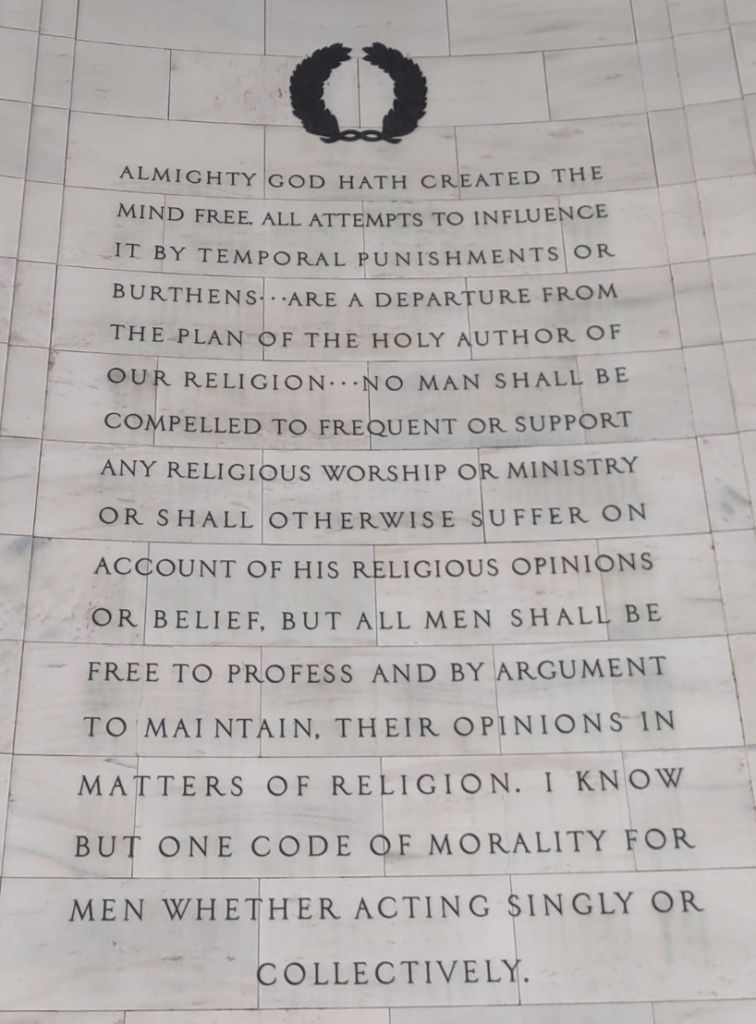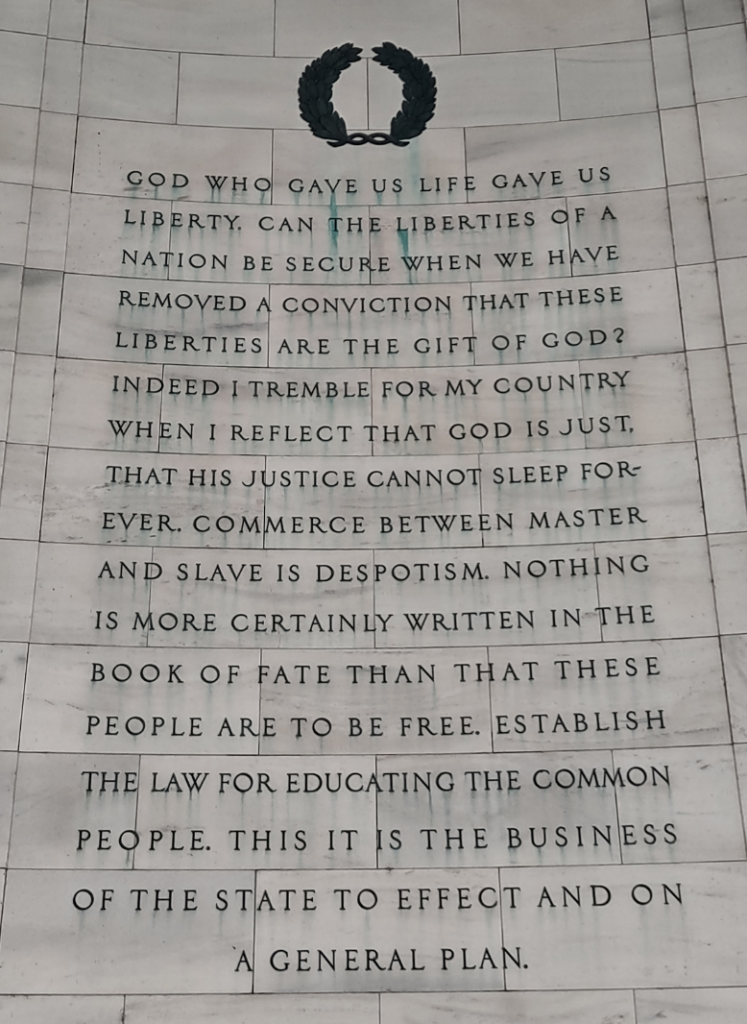Taken from Jimmy Akin’s A Daily Defense podcast (find it here).
Challenge
“People shouldn’t legislate their religious views. We live in a democracy, and not everybody has the same religion.”
Defense
This challenge is problematic on several grounds.
First, it assumes people in a democracy shouldn’t vote according to their beliefs. This is false. Democracies exist precisely to allow people to express their will regarding how society should be governed. Saying that they should not vote their will simply because it is informed by their religious views and others disagree with those views, is contrary to the fundamental enterprise of democracy.
We would not accept the same argument in a different field (e.g., people should refrain from voting based on their scientific views because other people disagree with those views), and we should not accept it here.
Second, people voting their religious views has done a great deal of good. In many countries, legal opposition to slavery, racism, and poverty has been motivated by people’s religious beliefs. We would not say that people motivated in this way should have refrained from voting because others disagreed with their religious views on these matters.
Third, while others’ religious freedom should be respected and protected by law in many situations, this principle is not absolute. Some- times the religious beliefs of a group are directly opposed to the common good. If the Manson Family believed it was okay to kill random people in Los Angeles, or if jihadist Muslims believe it is okay to attack innocent civilians in New York, that does not mean we are obliged to let them do these things.
Fourth, sometimes it is impossible for the law to accommodate different religious views because what is required by one religion is prohibited by another.
Fifth, the claim something is a “religious issue” is often a dodge used to avoid having to deal with the merits of the case. For example, pro-abortion activists often claim abortion is a religious issue. While—as with any issue—people may hold religious views regarding abortion, the truth is that it is a human rights issue that can be argued without any reference to religion (see Day 70).
In such cases, the claim one should not legislate religious views is a distraction from the arguments at hand. It is a conversation stopper used to prevent the merits of a question from being explored.
More Support for Religious Views in Legislation and Public Discourse Need for Democracy
From Fr. David Meinzen, a chaplain for the VA: There are more supports in our VA regulations, but the one I sent you below is one of the most recent, concise, and clear statements.
Attached here are photos from inside the Jefferson Memorial in D.C. taken on Aug 14 th , 2023. Out of the four inscriptions on
the interior walls, three of them express Jefferson’s clear, unambiguous conviction that the free and public expressing of
religious faith is vital to the freedom of our society. Indeed, the third quote contains Jefferson’s dire warning showing he
held that belief in God’s gracious rulership was non-optional for our society to maintain true liberty (you’ll recognize the
first quote as shaping a vital part of our Declaration of Independence from the English Crown).



These statements make it clear what Jefferson actually meant by his statement of “separation of church and state”—certainly not the banning of religious faith, expression, and practice from government or public life. This becomes even more clear when we actually pay attention to the wording of the 1st Amendment of our Constitution: “Congress shall make no law respecting an establishment of religion, nor prohibiting the free exercise thereof;…” This second clause is almost always left out of discussions and debates on this issue; however, the first clause of this very first law of our first amendment to our U.S. Constitution exists to safeguard the second clause = “…nor prohibiting the free exercise thereof”! Thus this second clause is the whole point of the Amendment! And even the freedom of speech part of the 1st Amendment which follows depends upon this first part guarding freedom of religious belief, since the two go hand in hand (which even then assumes free and open public discussion of religious belief, even in government).
We always forget that the first clause, “Congress shall make no law respecting an establishment of religion…” was directly against the practice of the English Crown demanding that the Church of England and its doctrines, headed by the Crown of England, be the religious faith that citizens had to swear public allegiance to if they wanted to function and advance in society (as it was also with many European governments of the day). Hence the quote in the second photo, and hence, “Congress shall make no law respecting an establishment of religion,” means no imposing of a single one,
and thus NO BANNING OF ANY Religion!!!
These show that the secularist-atheistic perverting of Jefferson’s doctrine of “separation of church and state” into a supposed banning of religion from our government and public spheres is just that—a perversion, and an intentional one at that. It is NOT a true representation of what Jefferson intended by that statement, but rather a co-opting and disingenuous twisting of it into a deceit that Jefferson intended “separation of church and state” to mean a supposed “freedom from” religion (i.e., banishing of religion from anything to do with the state). Clearly nothing could be further from the truth, as we can read in Jefferson’s own words! It is only our continued ignorance/ignoring of the actual wording of our Constitutional law and of Jefferson’s own doctrine which allows secular-atheists to prevail in bullying religious conviction, morality, and beholden-ness to God, Creator of natural law, out of our public life and government. Jefferson, rather, was making clear that God our Creator and His Law is our ultimate check and balance (our “one code of morality”) to keep the other checks and balances in our Constitutional Law system working rightly for the good of all.
May we become truly, rightly “woke” to Jefferson’s own concern—“God Who gave us life gave us liberty. Can the liberties of a nation be secure when we have removed a conviction that these liberties are a gift from God? Indeed I tremble for my country when I reflect that God is just, that His justice cannot sleep forever.”
May God’s peace and strength be with you to bless you!
Ch Meinzen

